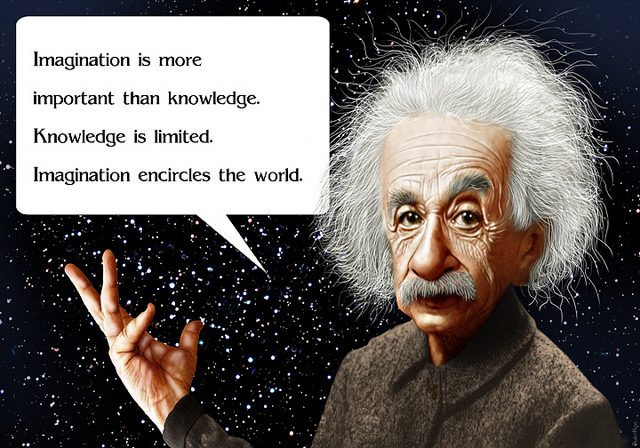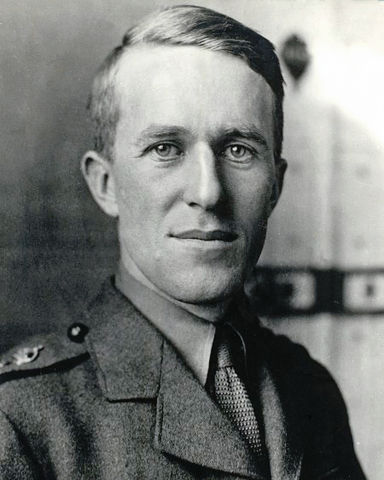I’ve written entries on hope and inspiration. This week, I’m writing about dreams and what it means to be a dreamer. Since dreaming is a fairly abstract concept to think about in detail, I had a tough time transposing my thoughts into written words.
Dreams are not something that are tangible. It is easy to say “I have such and such dream” but much different to analyze the concept. Dreaming has many similarities to hope as well where we expect life to end up a certain way. I didn’t want to repeat things from entry on hope so I used an example of a somewhat famous dreamer T.E Lawrence to diverge from hope.
I am but a dreamer. What do I mean when I say that? Most people equate it to being an idealist and having your head up in the clouds, and therefore there is a negative connotation of impracticality that goes with it. There is a thin line between being a dreamer and being insane stuck in a world of fantasy. Many people don’t like being thought of as being driven by fantasy and so not many people are truly dreamers. I can understand that being seen as a negative quality, but I want to show why these connotations are misplaced.
To some degree, having your head up in the cloud is true but not the whole story. Dreaming includes that and much more. I believe it also includes the notion that ideas have no boundaries. You cannot limit yourself on what is possible; one must think outside the box. Ideas are usually very important to dreamers. There are also goals and world view intertwined within the dreams we have. Imagination is also a big part of a dreamer; many writers, artists, theoretical physicists, singers, musicians, thinkers, mathematicians, philosophers, etc are often the dreamers.
Dreamers and visionaries often tend to be misunderstood until they do something marvelous. Einstein, Des Cartes, Tesla, Isaac Newton, Charlie Chaplin, J.R.R Tolkien, Beethoven, Mahatma Gandhi, Martin Luther King Jr, John Lennon, others whom I have mentioned on this blog before were all dreamers and/or visionaries. It wasn’t until they literally were changing the world and what it meant to be human that people suddenly flipped their opinions on them overnight from being called weirdos/odd to something positive.
If you ask people to think of a word to describe Einstein, nobody says “A dreamer!” first, but instead you might hear “physicist!” or “scientist!” or “genius.” Ten/fifteen terms later, you may hear “dreamer.” It is just how most people see that word, but the truth is he was a dreamer before he was ever a scientist. Einstein attributes general/special relativity, his greatest accomplishment and perhaps of humanity thus far, to his imagination.
There are essentially 2 types of dreamers. First are those who dream at night, but the dreams end when they wake up. Then there are those who dream during the day with open eyes. The latter are the most powerful and whom we should strive to be like because they are the ones who push themselves to make their dreams a reality and change the world either for the better or worse – based on a quote from the book “Seven Pillars of Wisdom” by British officer T.E Lawrence, who I talk about below.
In some ways, everyone is a dreamer. To accomplish anything in life, the very first step is to dream it. I believe every person has dreams, but not everyone goes out there to attain their dreams. The ones who do – they change the world.
Lawrence of Arabia
“All men dream, but not equally. Those who dream by night in the dusty recesses of their minds, wake in the day to find that it was vanity; but the dreamers of the day are dangerous men, for they may act on their dreams with open eyes, to make them possible.” – T.E Lawrence, “Seven Pillars of Wisdom” (‘Lawrence of Arabia‘, widely considered one of the greatest movies of all time, is based on that book)
The example I would like to use is the true story of T.E Lawrence, who was considered a hero but also controversial.
T.E Lawrence was a British Intelligence officer stationed in British-controlled Egypt during World War 1. While Britain was busy fighting Germany on the Western front, they couldn’t fight the Ottoman Empire (Turks) on Eastern front at the same time. Lawrence’s job as a British officer was to use guerrilla warfare to damage the Ottoman Empire as much as possible from the Eastern front. Britain and the allies lacked the ground troops in Egypt for a two-front assault to back up and supply Lawrence so he was a limited in how much damage he could do.
To truly take the fight to the Turks, Lawrence decided to do something that the British thought was impossible: unite the Arab tribes throughout the present day Saudi Arabia region. Lawrence learned the language, customs, and cultures of the many tribes and worked to unite them towards a single goal of toppling the Ottoman Empire, one of the last remaining monarchy empires.
His British superiors and colleagues laughed at him, calling him a hopeless dreamer. Lawrence goes out there and wins over the largest tribes one by one. Under Lawrence’s guidance, they destroy Ottoman train tracks and capture the fort of Aqaba. The British were so impressed by this dreamer taking up the challenge and taking the fight to the Turks using untrained Arab tribal-men on camels and horses that they promoted him to captain.
The Turks were enraged by Lawrence doing something impossible that they put a bounty on his head. Turks were expecting the Arabs to backstab him to collect the bounty, but this TE Lawrence had inspired & won over the Arabs to the point that nobody betrayed him.
They won more battles versus the Turks using guerrilla warfare tactics led by Captain Lawrence. Even the British were inspired by Lawrence that they promoted him again to Lieutenant Colonel. He was one dangerous man the Turks truly feared. He was instrumental in taking down Damascus, the capital of the Ottoman Empire, and bringing the Ottoman Empire to its knees (it fell apart after World War 1 into Turkey and few other nations).
He started with a very small band of poorly trained fighters, but when he was done, he had thousands of warriors. The Arabs began seeing him as one of their own, and bestowed upon him the name “Lawrence of Arabia.” He inspired the British, Arab nations, and tribes to all willingly fight united and die for this one adventuring dreamer T.E Lawrence.
There are a few scenes I found truly inspiring from the movie, but there was one that was fantastic & memorable. Here’s the breakdown. An Arab warrior Gasim, who fought alongside Lawrence, had fallen off his camel from exhaustion many hours before during their journey across a desert. Since Lawrence was leading up front, he didn’t know Gasim had fallen. The leader of Arab tribe begs him not to test his fate and told him Gasim’s death has already been written. Lawrence simply says “Nothing is written.” Lawrence was exhausted with no water left after long march, but he decides to go back into the desert to save Gasim.
Lawrence’s friend Daud, who we see in the video, waits for Lawrence to return. As Daud sees a mirage of Lawrence far off into the distance, he rides out at full speed in pure excitement for his friend, yelling and waving “Lawrence”. Lawrence returns to the group with Gasim and defiantly says again to everyone “Nothing is written.” Lawrence proves to everyone that nothing is written because in life, you write your own destiny through free will and the choices you make. There is no such thing as fate because you write your fate as you go along. It is an idea I completely subscribe to – things like astrology attempt to trample over the concept of free-will by trying to show that everything is written in the stars, but I absolutely believe in free will (I refuse to accept astrology on this one single powerful notion). It is a very powerful scene with the theme song blaring in background as Daud rides out to Lawrence.
Back to the topic. T.E Lawrence was considered controversial because his beliefs opposed the imperialistic ambitions of Britain. He wanted Arabia to become its own nation without Britain meddling in their affairs. He was outspoken about it, and in some ways went against Britain. I’m sure there were egos involved by Lawrence & others (to be expected), and Lawrence did exaggerate his stories a little bit. He was a complex figure who nobody truly figured out, and over time, he became almost mythical.
The moral of the story is that anybody can dream, but it is those who take those dreams and their ideas to the next level who truly change the world. It is those with compelling stories to tell and the ability to inspire those around them who are truly dangerous with good or bad intentions.
T.E Lawrence was a dreamer who made it possible to unite the Arabs and take down the mass-murdering regime of the Ottoman Empire. Lawrence had good intentions instrumental in damaging the Ottoman Empire during World War I when over 8 million people died. That was his story, which he wrote about in his autobiography ‘Seven Pillars of Wisdom’ some years later (interestingly, he refused to make any money off it and in later publications gave the money away to an education fund for the children of deceased Royal Air Force pilots). He died in a motorcycle accident in his 40’s.
Be Wary of Dreamers
There is another darker meaning to the phrase by Lawrence that I came across, which I will explain below. I was not thinking of this possibility, but some believe this is what Lawrence actually meant. Even though I prefer the initial meaning above, this other meaning also makes complete sense. We don’t know which meaning Lawrence was referring to when he wrote the book.

Some say that phrase is a warning by Lawrence to be wary of dreamers. While dreamers can be inspiring, they can also be scary people. I mentioned the dreamers with good intentions earlier, such as Gandhi & Einstein, but there are other dreamers with much darker intentions.
This other spectrum of dreamers includes the biggest mass-murderers & powerhungry people the world has ever seen. This group of dreamers includes people like Hitler, Stalin, Mao Zedong, even Julius Caesar to some degree (very much arguable whether Julius Caesar had ‘good’ or ‘bad’ intentions -some historians say he was necessary for Rome’s progression as a nation- but can’t get into that here). Caesar was a dreamer based on everything we know of him and a very ambitious individual.
There’s a thin line between a dreamer with positive intentions and one with negative intentions. The problem is we tend to make a dreamer seem idealistic and in some ways moralistic, but that’s not entirely always true. The true dreamers tend to be goal oriented, direct and passionate in the pursuit of whatever they seek. That is where the danger lies. I will focus on Gandhi and Hitler for this point since everyone knows them.
Not many think of Hitler as a dreamer because while the word ‘dreamer’ has a somewhat negative connotation, it is not negative to the point where one would expect Hitler to be in there. The truth is, based on everything we know of his childhood and the person he was, he fits as a dreamer. His ultimate dreams were based around destruction, death, and world domination. The scariest thing of all is he came close to carrying out his dreams. If D-Day had failed, we may be speaking German, and anyone of Jewish descent, gypsy, LGBT community, physical/mental disabilities would not be living then or today. Essentially, anyone without blonde hair and blue eyes would be in trouble. That was Hitler’s dream, but thankfully there were folks willing to fight and die to ensure Hitler’s dream was shattered into pieces and did not come to pass.
We can even look at Gandhi. He gained immense power and support by putting his dreams into action. If he was power-hungry (we know he wasn’t but let’s just consider the hypothetical), he could have easily used that power for himself. He had enough support to take over as king if that was his ultimate dream, and people would have accepted it. We obviously know that was never Gandhi’s dream.
Dreams are an interesting but dangerous phenoma. Gandhi could’ve been seen as a tyrant today if he had chosen to. Hitler could have been seen as a beacon of hope for humanity if he had chosen to. This is why dreamers are dangerous people. You have no idea what their dreams and intentions are until they put their dreams into action.
There were some red flags with Hitler such as in his speeches, where he attacked people of different groups like Jews/gypsies/handicapped/etc, heavy propaganda usage, and his book Mein Kampf in the 1920s and 1930s, but he did not outright write or say his intention was setting up extermination camps, genocide or world domination. Nobody had any idea until he took control of Germany in early-1930s. It is easy for us to sit here after the war and ask “Why did nobody stop him before he killed so many?” but hindsight is 20/20.
His ultimate dreams were not realized until the 11th hour when he invaded Poland and news began pouring in a year later of concentration camps being setup after the Nazis took over Poland. Military intelligence officers in countries like United States were stunned to the point that they didn’t release full data to the public on the extent of what was happening in the concentration/extermination camps until the war ended (not that they had images or videos, but they suspected it was happening & had evidence in 1942).
More than 60 million died and countless others were left permanently disabled/orphans in trying to stop this monster. It is very scary to think about; he was a calculated sly person who knew exactly how to use the emotions of people for his own benefit. These are the sort of dreamers you truly fear. The world has seen many such powerhungry individuals over time. It very well may be due to the fact that humans become corrupt easily in their search & thirst for power rather than the prospect of dreaming being the culprit.
That very well may have been what Lawrence meant all along as a warning to be wary of dreamers. Unfortunately, we can’t ask him what he meant exactly as he has been dead since 1935. Lawrence himself was a dreamer, but his intentions were clearly good. It is not until a person puts his dreams into action that we truly know the individual.
Search Within for Dreams
I am but a dreamer. What is my dream exactly? The truth is I cannot answer this question because I have yet to realize it. I don’t know what my ultimate dream is. I always wanted to inspire people and in some ways to empower people to think outside the box. There is nothing more dangerous than limiting yourself in what you think, imagine, and dream. Perhaps from that a dream will emerge, but I don’t have a dream yet.
There are those who believe one should never publicly admit what their dreams are. Not until you accomplish them. Everyone has dreams, but to admit to them ahead of time is counter-productive.
There is an old phrase “the world is your oyster” (phrase originated from Shakespeare’s writings: “Why then the world’s mine oyster/Which I with sword will open” – oysters contain pearls). The way I understand it is the world is ours to enjoy because we have the power to make ourselves how we wish to be. Essentially, we have the power to make our dreams a reality. For in that phrase, oysters are your world and the sword is your dream to reach the pearls, which represents whatever you seek in life. I will take it a step further in the context of this blog post – we are all gods within our dominion of life, and dreams are our vision to the life we want.
In the end, our imagination drives us. Nothing in life is written in stone – you dream it and go out there & write it. Dream big and keep dreaming for life!
- My Favorite Books - February 7, 2024
- Review of Carl Sagan’s The Demon-Haunted World - January 31, 2024
- The 75 Greatest Films of All Time - December 22, 2023







